Marvel's Midnight Suns is more Fire Emblem than XCOM
And is better suited to superhero shenanigans as a result.
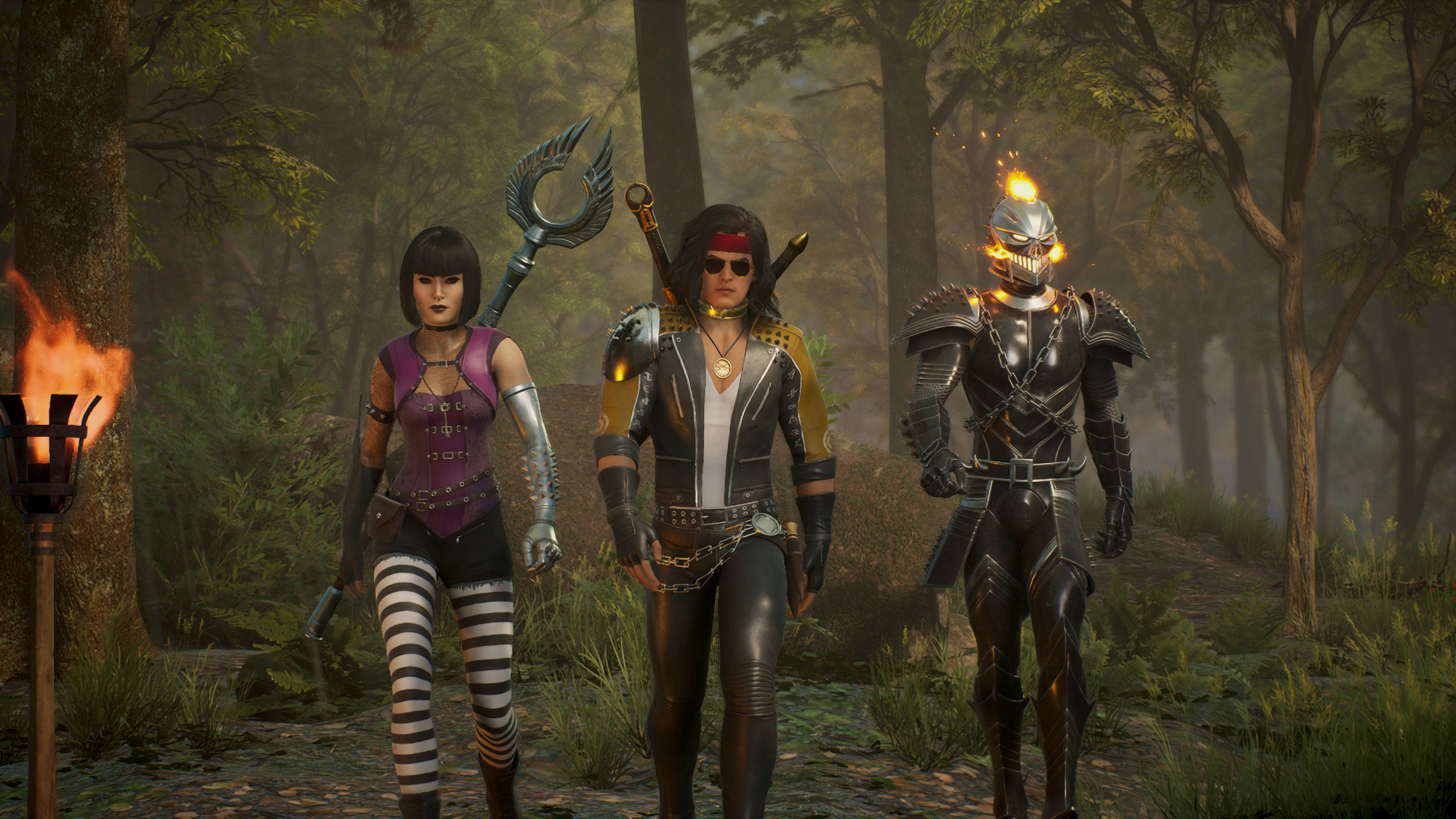
In Marvel's Midnight Suns, you're a half-demon monster slayer who's woken up after three centuries to find your demonic mother sowing chaos and Hydra all jacked-up on gamma juice. The fate of the world hangs in the balance, and a group of superheroes are looking to you to save the day, so what do you do? Go on dates. Lounge around the pool. Organise surprise parties. What else?
When Firaxis brought back XCOM in 2012, reinvigorating the turn-based tactics genre on PC, this was not where I was expecting it to lead: reading by the fireside with Blade, the fearsome vampire hunter, to increase our friendship rank. At the end of the admittedly lovely evening, I unlocked a pair of rare swimming trunks for the brooding hero. I'm still not convinced this isn't some kind of fever dream.
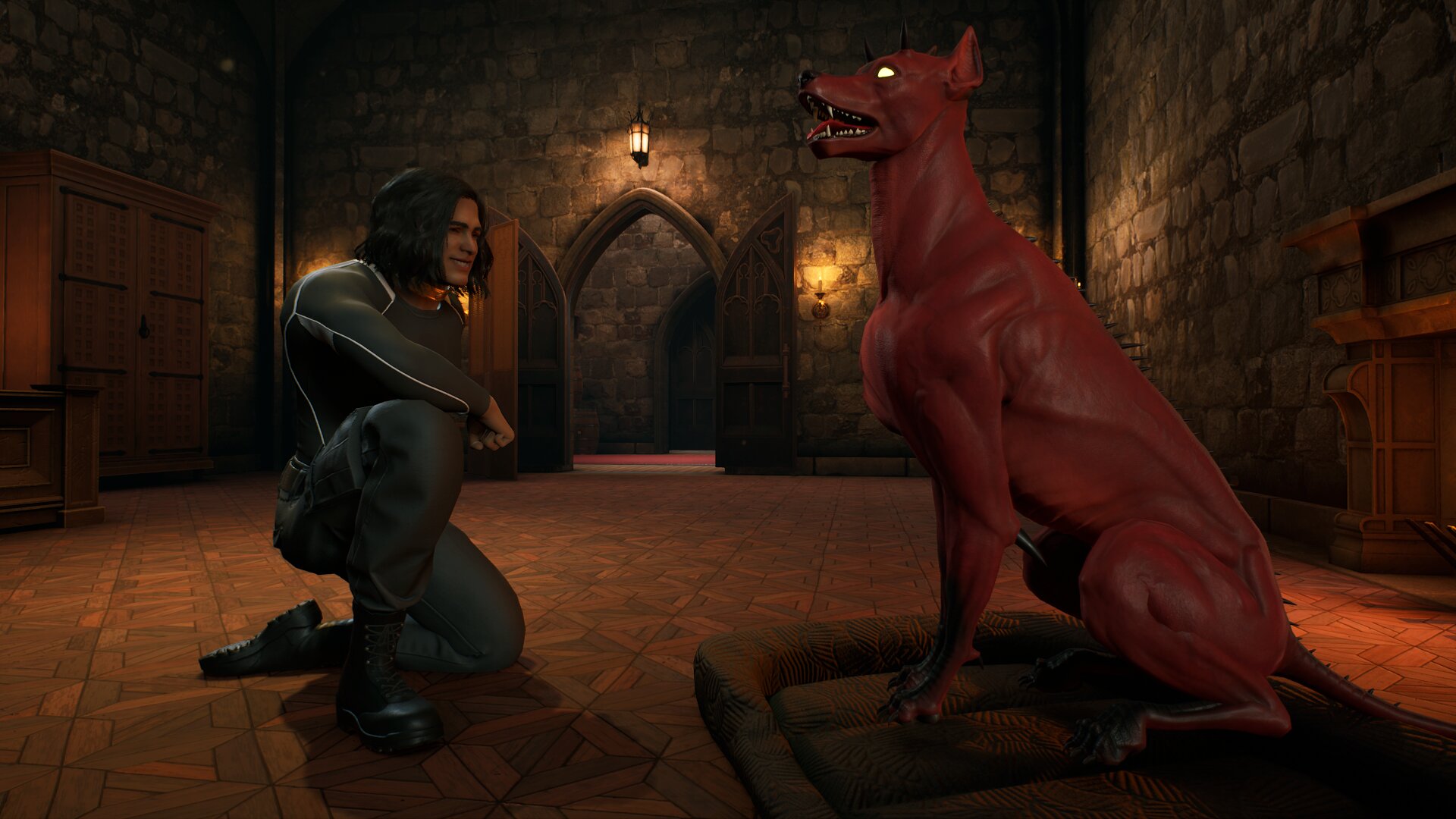
There's a clever turn-based tactics game here (which you can read more about in our previous Midnight Suns hands-on), where you command your squad of heroes by throwing down cards drawn from their unique decks, but so far I've spent a lot more time hanging out with my new friends than fighting supervillains, demons and fascists. Midnight Suns is obsessed with the social lives of superheroes, and by putting friendship and camaraderie at the centre of everything, it ends up feeling a lot more like Fire Emblem—particularly the excellent Three Houses—instead of XCOM.
In my first proper mission, my team was saved from Venom—looking quite a bit more demonic than usual—by Spider-Man, who led the monster on a merry chase through New York. I thought we'd join forces with him right away, but no, instead I went back to the Abbey—think Xavier's School for Gifted Youngsters, but spookier—for some downtime. I joined a club, explored the grounds, picked flowers and asked Blade to help me hang up balloons for Magik's birthday party. By the time I was ready to help Spider-Man, he'd been dragging Venom around New York for days.
I cannot stress enough how much I love this, even if it makes me a terrible superhero. While most heroes would have returned to Spider-Man's side a bit quicker, in every other way it feels true to the comics. For every fate-of-the-world crisis, there are a multitude of moments where the heroes are hashing out their differences, flirting or getting all boozed up. Sometimes they take beach holidays (usually spoiled by some aquatic monster). Unlike the stoic members of XCOM, superheroes know how to live a little.
Drama club
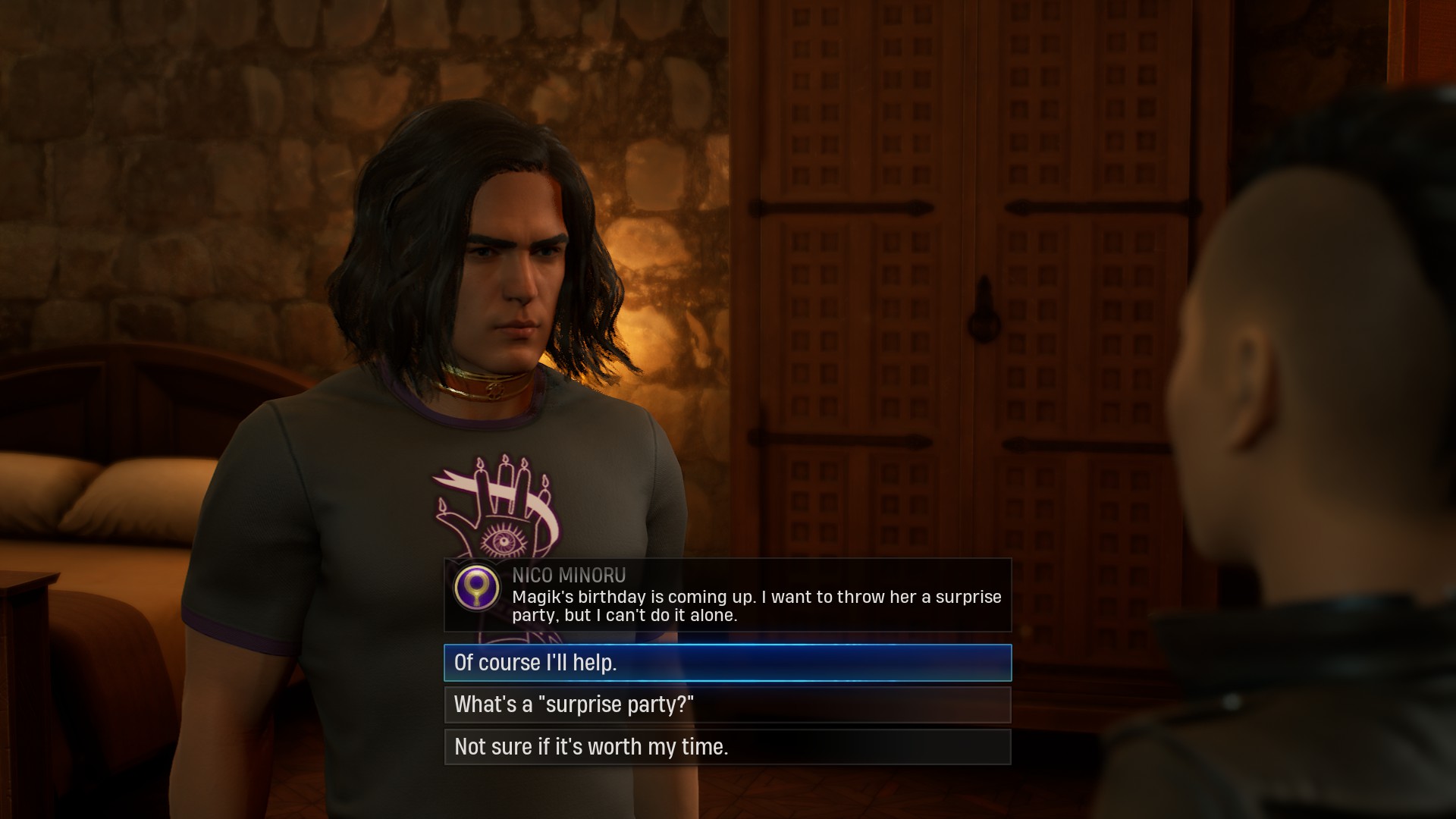
These are established characters with big egos and a way of making drama gravitate towards them. Tony Stark simply refuses to stop cracking shit jokes and I think it might destroy the team. That's if his roommate, the prickly Doctor Strange, doesn't murder him first. Spider-Man buckles to peer pressure at the drop of a hat and wants to please everyone. And Magik's just plain mean. They're all just very insecure, so it's pretty much high school again—full of rivalries and cliques, popular kids and outcasts. Except some of them are middle-aged men.
It's pretty much high school again—full of rivalries and cliques, popular kids and outcasts.
I'm already more invested in them—even the ones I don't really like—than I could be with an interchangeable squad of soldiers. Even XCOM's highly customisable ones. And this has an impact on the choices I make about who to bring into battle. When Robbie Reyes—a younger, less confident incarnation of Ghost Rider—asked if he could join the next mission because he was feeling left out, I made sure to put him in the roster, not because he was essential, but because I didn't want my bud to feel bad. We'd previously had a heart-to-heart about him feeling like a ghost, ignored by the powerhouses like Iron Man and Captain Marvel, so this request felt less random, making me more inclined to do him a solid.
The biggest gaming news, reviews and hardware deals
Keep up to date with the most important stories and the best deals, as picked by the PC Gamer team.
This favour worked out well, with Ghost Rider firing on all cylinders because he was so happy to be included. It's one of several ways that, like Fire Emblem's support system, relationships play a role on the battlefield. You can also see a kernel of this in XCOM 2's War of the Chosen expansion and its soldier bonds, where soldiers can become very attached to one colleague and get a range of perks while fighting with them. In Midnight Suns, though, the concept has been expanded significantly, with various short- and long-term relationship objectives. There are a lot of rewards, too, ranging from cosmetics to more practical things like stat buffs. You'll also unlock combo cards that allow heroes to gang-up on an enemy and unleash a powerful attack. Rather than just being an ancillary feature, relationships are the umbrella that loads of other systems sit under.
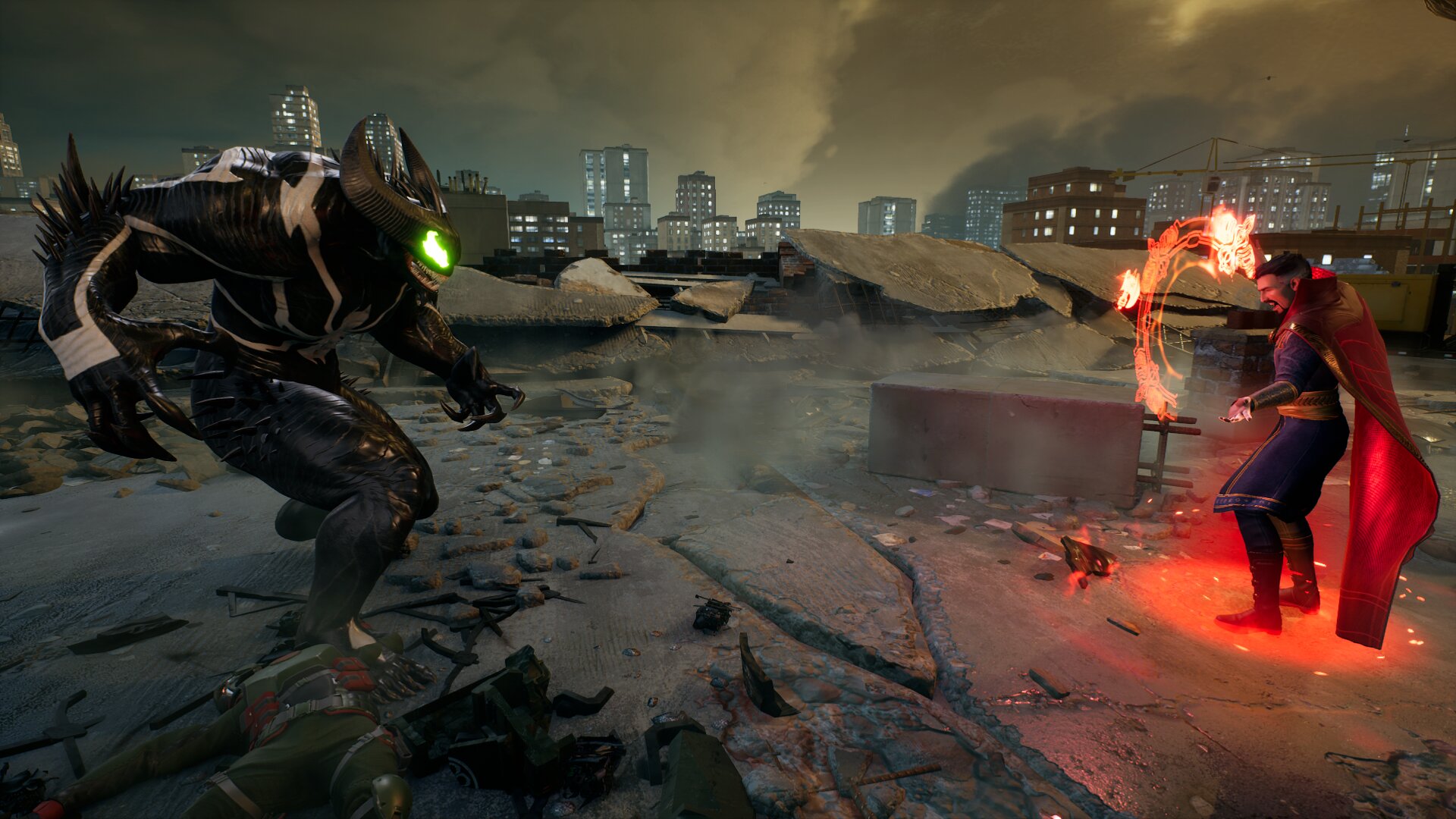
With fewer characters than Fire Emblem, Midnight Suns is able to take its friendship sim even further and make each social encounter unique. One of the most common ways for friendships to blossom is through the post-mission one-on-one hangouts. There's a list of activities you can share with all heroes, but everyone has their own preferences. You'll learn what kind of things they like to do over time, but the activity isn't the only contributor to your burgeoning friendship. When I watched a movie with Magik, she was not a fan, but the accompanying chat brought us closer. These are all brief vignettes, but they always offer you a new insight into your prospective BFFs.
My social life really is out of control at the moment, in stark comparison to the one outside the game.
On top of the hangouts, you can pay your pals compliments after they've completed missions, spar with them, take them to one-off locations around the Abbey for a meaningful chat, respond to DMs and become embroiled in scripted drama or activities, like the aforementioned surprise party. My social life really is out of control at the moment, in stark comparison to the one outside the game. I'm barely out the door when I've got texts from Spider-Man asking me to get resources for Shop Class (where all the geeks make cool gizmos, represented as handy new cards) or Nico asking if I want to come to the Emo Kids club that evening (where we use magic to fix fractured memories) or Blade asking me if I want to do some yoga. How did I get so popular?
So yeah, it can be a lot to take in at first. In your first 10 hours, you're not going to get through a day without discovering new systems. Along with all the social activities, you've got crafting, research, solo hero operations, collectables and mysteries dotted around the Abbey grounds all competing for your attention. And don't forget that this is a card game (occasionally), so you'll need to upgrade cards, unlock new ones and keep tweaking each hero's deck. It drags you around by the nose during those initial hours, pointing out all the things you can do, and rather quickly you'll be desperate to just have the opportunity to get settled. Thankfully, it does ease up, and after trying to soak it all in you're told you can now just wander around the Abbey and engage with the systems as you see fit.
Lord of the manor
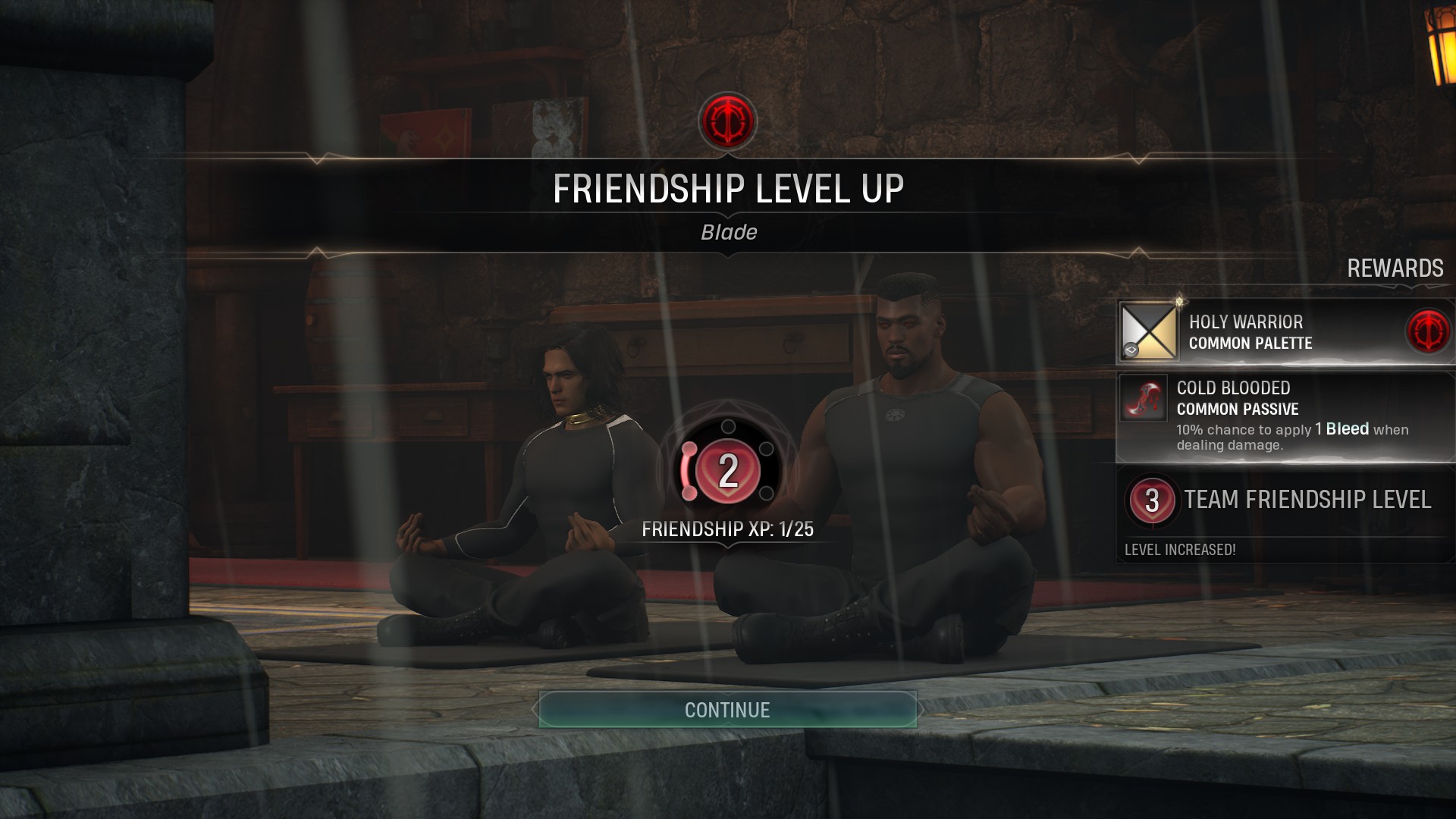
The Abbey, I should add, is absolutely massive—much larger than Three Houses' Garreg Mach Monastery. The building itself is fairly compact, but then you have the expansive grounds that just seem to go on and on. And on. They're labyrinthine, too, so expect to get lost, even with the aid of the map. Walls and broken bridges will bar your way at first—a welcome limitation that makes exploring the grounds a less arduous prospect—but I still found myself traipsing around for bloody ages, hunting for mushrooms, chests, mystical objects and special places for some heart-to-hearts.
XCOM's HQ is all about function, aside from the snippets of dialogue you get from the section heads. But the Abbey is a home and a sanctuary—somewhere you can clear your head after you've just spent the afternoon being smothered in Venom goo. In Garreg Mach Monastery, the students sing in the choir or share meals to unwind, but the Abbey's heroes prefer videogames, sunbathing and knocking back sodas in their dry bar. In both cases, it's a respite from the conflict in a way that XCOM's HQ, with its Geoscape that's constantly telling you that time is running out and everyone is going to die, could never be.
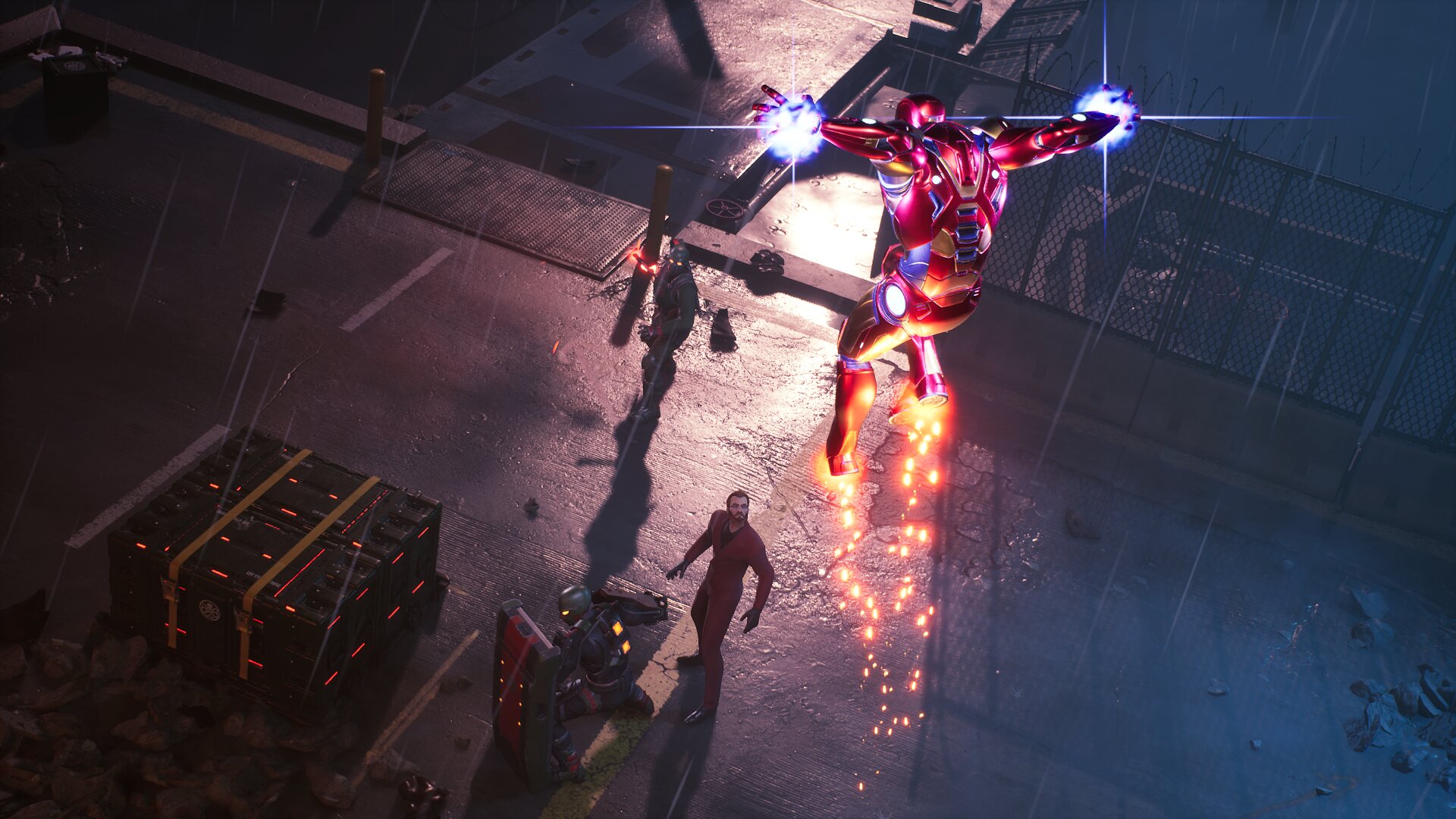
There are still plenty of hints of XCOM everywhere, with a lot of the Abbey's facilities essentially being analogous. The management of scarce resources has also been brought over, making you prioritise which heroes you can develop and new tech (or magical MacGuffin) deserves to be explored. But it's still hard to imagine a more different take on turn-based tactics. After XCOM: Chimera Squad's bespoke characters, I thought there'd be a bit of development there, but Midnight Suns goes so far beyond the buddy cop spin-off that it doesn't even feel like a prototype of a prototype.
Firaxis has taken Midnight Suns in an undoubtedly unusual direction—one that won't stop spitting out weird surprises—but so far I'm loving the ride. I've still got a lot of friendships to make, however, and I guess at some point I should consider saving the world? I'll have to check my social calendar first.

Fraser is the UK online editor and has actually met The Internet in person. With over a decade of experience, he's been around the block a few times, serving as a freelancer, news editor and prolific reviewer. Strategy games have been a 30-year-long obsession, from tiny RTSs to sprawling political sims, and he never turns down the chance to rave about Total War or Crusader Kings. He's also been known to set up shop in the latest MMO and likes to wind down with an endlessly deep, systemic RPG. These days, when he's not editing, he can usually be found writing features that are 1,000 words too long or talking about his dog.

